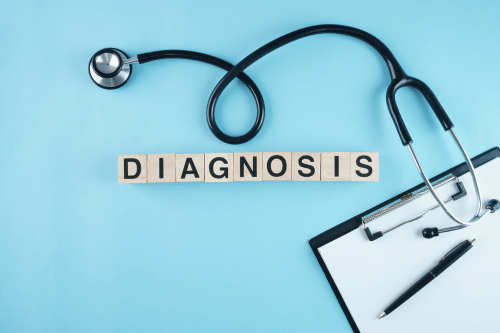OCMH Dual Diagnosis: Comprehensive Care for Co-Occurring Disorders
What is Dual Diagnosis?
Dual diagnosis refers to the presence of both a mental health disorder and a substance use disorder in an individual. These co-occurring disorders create a complex condition that requires specialized care. Many people with mental health issues such as generalized anxiety disorder, bipolar disorder, or depression symptoms struggle with substance abuse as a way to self-medicate symptoms. However, this often leads to a vicious cycle where both conditions worsen over time.
Importance of Integrated Treatment Approaches
An integrated treatment approach is essential for individuals with dual diagnoses. Traditional treatments that focus only on either substance use disorders or mental illness often result in incomplete recovery and a higher risk of relapse. A comprehensive approach ensures that both conditions are treated simultaneously, improving quality of life and increasing the chances of long-term recovery.
At Adolescent Mental Health, we provide comprehensive care tailored to each individual’s unique needs. Our dual diagnosis treatment programs combine behavioral therapy, cognitive-behavioral therapy (CBT), Dialectical Behavioral Therapy (DBT), addiction therapy, and medication management to promote lasting recovery.
Common Mental Health Disorders Associated with Substance Use

Anxiety Disorders
Individuals with anxiety disorders, including generalized anxiety disorder, often turn to substances like alcohol or drugs to manage their symptoms. However, this temporary relief can quickly lead to chronic substance abuse, worsening both conditions.
Mood Disorders
Mood disorders, such as bipolar disorder and depression, frequently co-occur with substance use issues. People with these mental health challenges may experience severe mood swings and withdrawal symptoms, making recovery from substance use more difficult.
Personality Disorders
Individuals with co-occurring mental health disorders like borderline personality disorder or antisocial personality disorder often struggle with drug abuse and alcohol abuse. Their cycle of addiction requires an approach to treatment that includes individual therapy, family therapy, and art therapy.
Understanding Co-Occurring Disorders
Definition and Prevalence
Co-occurring disorders are common, affecting nearly 50% of individuals seeking substance abuse disorder treatment.
Symptoms and Warning Signs
- Persistent mental health symptoms
- Increased reliance on substances
- Social withdrawal and isolation
- Difficulty maintaining daily responsibilities
- Increased cardiovascular risk factors
The Need for Simultaneous Treatment
To achieve effective treatment, it is crucial to address both mental health conditions and substance use disorders together. Dual diagnosis treatment options at AMH include comprehensive drug addiction treatment and dual diagnosis rehab treatment to ensure a continuum of care.
OCMH Clinics and Specialized Care
Personalized Treatment Plans
Each patient at AMH receives a personalized treatment plan that includes individual counseling, group therapy, holistic therapies, and comprehensive treatment programs.
Medication Management
Our mental health professionals provide medication management to support mental health recovery and prevent withdrawal symptoms.
Therapy Options
- Cognitive-behavioral therapy (CBT)
- Dialectical Behavioral Therapy (DBT)
- Light therapy and low-level laser therapy
- Family therapy and counseling sessions
Barriers to Accessing Dual Diagnosis Treatment
Stigma and Misunderstanding
Mental health issues and substance abuse are often misunderstood, leading to stigma that discourages individuals from seeking help. Community-based resources and mental health care education can help break down these barriers.
Availability of Resources
Access to specialized services like dual diagnosis treatment centers can be challenging. However, AMH provides comprehensive treatment plans for individuals in Orange County, Costa Mesa, Newport Beach, and Huntington Beach.
Financial Constraints
The cost of dual diagnosis treatment can be a challenge for treatment providers and patients alike. AMH offers flexible options and accepts various insurance plans to ensure access to adequate care.
The Role of Support Systems

Key Strategies for Long-Term Recovery
Coping Mechanisms
Developing healthy coping mechanisms such as physical therapy, holistic care, and thyroid hormone replacement therapy helps manage mental health symptoms.
Building a Support Network
Engaging in a recovery community can provide the necessary peer support.
Setting Achievable Goals
Structured treatment plans help individuals work towards complete sobriety and comprehensive recovery journeys.
Frequently Asked Questions
What to Expect During Treatment?
Treatment includes individual therapy, inpatient rehabilitation, and residential treatment centers designed to meet the level of care required for effective treatment.
How to Choose the Right Treatment Facility?
When selecting a dual diagnosis treatment provider, consider the availability of dual-diagnosis treatment programs, specialized care, and a comprehensive strategy.
What Are the Steps to Recovery?
- Accurate diagnosis and assessment
- Holistic approach combining behavioral health professionals and mental health professionals
- Comprehensive treatment including substance use disorder treatment
- Relapse prevention strategies and friends in recovery
Conclusion
Dual diagnosis treatment programs provide an effective treatment solution for individuals with co-occurring disorders. AMH offers first-class addiction treatment with a comprehensive treatment plan designed to promote lasting recovery. If you or a loved one is struggling with dual diagnoses, contact Adolescent Mental Health today for unparalleled recovery experience and compassionate care.










